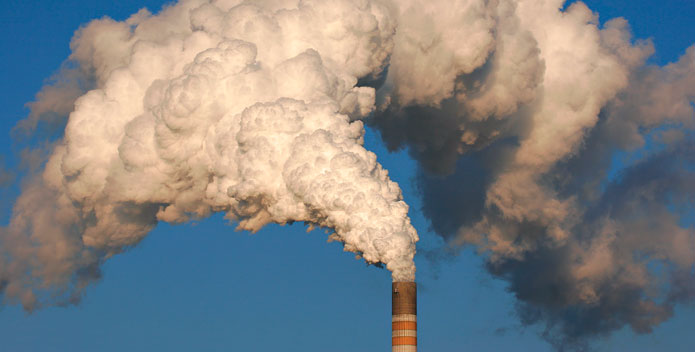The following first appeared in, Bay Journal.
As promised, the Trump administration has acted to repeal the Clean Power Plan, the Obama era rule aimed at reducing carbon emissions.
The administration's refusal to address climate change is short-sighted in countless ways, as we in the Chesapeake region already understand firsthand. The Bay's trophy rockfish are struggling to find oxygen as the water gets hotter. Species like soft shell clams and eelgrass are being stressed by warmer water that eventually could eliminate them in the Chesapeake. Sea level rise is threatening coastal marshes and low-lying lands like Tangier Island.
While primarily designed to reduce greenhouse gases, the plan would also reduce nitrogen pollution emitted from coal-fired power plants. These air pollution reductions were factored into the scientific model that forms the basis for the Chesapeake Clean Water Blueprint. If these reductions are not achieved, the work of Bay states becomes harder, and specific sectors such as agriculture, urban stormwater, and even sewage treatment plants, may be asked to do even more.
Air pollution is one of the largest sources of nitrogen pollution to the Chesapeake Bay watershed, primarily from power plants, trucks and cars, and oil and gas production. Six times more nitrogen comes from atmospheric deposition than all of the Bay wastewater treatment plants combined.
The airshed, the total area contributing nitrogen to the region is enormous—570,000 square miles. It extends from Canada in the north, to portions of Indiana in the west, to the northern tip of South Carolina.
The repeal of the power plan will undoubtedly trigger both court challenges and a flood of public comments in opposition. Similar challenges are already under way in response to another air pollution travesty in Baltimore, where roughly 70 percent of the city's ground-level ozone — air pollution — problem is the result of emissions from power plants and vehicles in upwind states, according to the Maryland Department of the Environment.
Nineteen power plants in Pennsylvania, Ohio, Indiana, West Virginia, and Kentucky have installed pollution controls, but they don't fully turn on those controls or operate them efficiently during hot summer months. As a result, the plants' owners saved $24 million in one recent summer while their plants' emissions drifted to Maryland, according to the MDE. That meant that the Bay received 39,000 tons of additional nitrogen oxides (NOx) pollution. NOx also create ozone on hot summer days. Ozone levels were so high on 14 days last summer that a Code Orange Air Quality Alert was issued for the Baltimore area. This meant that the air was unhealthy for seniors, children, and others with sensitivities.
Maryland officials contacted those upwind states and asked for help, but nothing was done. And, the U.S. Environmental Protection Agency is allowing this to happen. The Chesapeake Bay Foundation believes this a violation of the Clean Air Act's “good neighbor” provision, which requires states to ensure that their pollution does not damage air quality in downwind states.
The CBF, along with the Environmental Integrity Project, the Chesapeake Climate Action Network, the Sierra Club, Environmental Defense Fund, and Physicians for Social Responsibility, have gone to court to prod the EPA to make a decision. The State of Maryland recently filed a similar suit.
Federal rules give the EPA until early December to respond. If the EPA agrees to require these plants to run their controls, it will be the end of the case. But if the agency will not require the plants to run their controls, more litigation will be necessary.
Climate change and air pollution are not future threats for the Chesapeake Bay. We are already experiencing impacts that will harm the communities and economies that depend on clean water. The Chesapeake Bay restoration effort is poised to be one of the greatest environmental success stories ever. Backtracking now makes no sense. It is time to charge forward, not retreat.
Kim Coble
Issues in this Post
Air Pollution Air Pollution Politics Water Quality CBF in Maryland CBF in Virginia CBF in Pennsylvania



